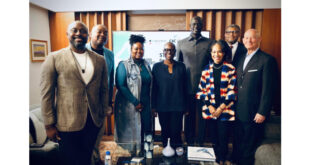Customer
satisfaction in the Philippines exceeds global average
Post-pandemic,
consumers will increasingly expect great experiences across whichever channel
they choose
MANILA, PHILIPPINES – Media OutReach – 20 May 2021 –
New research
released today from Qualtrics (Nasdaq: XM), the world’s No.1 Experience
Management (XM) provider and creator of the XM category, reveals how consumer
behaviour and expectations are changing in the Philippines, and the new
experiences businesses should provide to meet the needs of consumers today and
in the future.
The
new study from the Qualtrics Experience Management
(XM) Institute, “2021 Philippines
Consumer Trends”, examined the perspectives of 1,000 consumers in the
Philippines. The study highlights how companies will need to rewrite their
playbooks to deliver great online, in-person, and hybrid experiences to attract
and retain customers.
“Across
the world and especially in Southeast Asia, we are seeing customer preferences
and expectations evolve at a rapid pace. If businesses are going to adapt and
thrive in this new environment, they need to understand the ‘how’ and ‘why’
behind these shifting behaviours, and then use the insights to proactively
design and continually improve offline and online experiences for their
customers,” said Harish Agarwal, Head of CX Solutions & Strategy for
Qualtrics in Southeast Asia.
“Our
research shows that consumers are not going back to the way things were,” said
Bruce Temkin, Head of the Qualtrics XM Institute. “Consumers have adapted to a
new, digital-first landscape, and the experiences that they have with brands
across digital channels directly impact their purchasing decisions. In order to
be successful, organisations need to prepare for the future instead of trying
to recreate the past.”
Study
Highlights for trends in the Philippines:
- Consumer satisfaction in the Philippines exceeds the global
average. Almost three-quarters of consumers in the
Philippines (72%) said they were satisfied with their brand interactions, in
comparison to 66% globally. Fast-food restaurants (85%) and Grocery stores (82%)
both delivered the highest levels of satisfaction, followed closely by
streaming services (81%). - There will be a snap back from digital behaviours. Having embraced new digital
channels for most engagements during the pandemic, there is now a clear
differentiation between what behaviours consumers will revert to or continue to
adopt – if at all.
- ○ Consumers in the Philippines said
they expect to do less of the new digital behaviours they adopted during the
pandemic as things return to normal – including online retail and grocery
shopping, using food delivery services, contacting customer support, online
education, and streaming content
- ○ The only behaviour consumers
said they expected to do more of was online banking
- Customer service is an important differentiator. Consumers are more discerning
than before about their purchasing choices, and organisations need to do more
than market the quality or price of their products and services: 23% of
consumers would prefer to buy from an organisation that treats them well,
compared to 10% who favour price. - Consumers increasingly expect great experiences across
multiple platforms. Organisations need to invest in delivering quality customer
service and meet customers where they are – whether that’s online, in-person or
somewhere in between: 31% of consumers expect to resolve support in person, 30%
over the phone, 23% through online chat, and 16% via self-serve systems. - Satisfaction breeds trust and advocacy. Positive experiences inspire
greater levels of trust and advocacy among consumers. Consumers who have good
experiences with organisations in critical industries — such as education
systems, hospitals/medical clinics, and government agencies — are more likely
to trust them. And when consumers trust an organisation, they’re more likely to
recommend them to friends and family, helping to attract new customers.
Organisations
must continue to change and adapt to the changing consumer expectations in the
post-pandemic environment. To do that at scale, organisations will need
experience data – what consumers say they want and expect —to stay ahead of
customer expectations and design the experiences that attract and retain them.
Additional Information:
Source link
 Odisha Samachar Odisha Breaking News , Odisha Current News , Odisha News
Odisha Samachar Odisha Breaking News , Odisha Current News , Odisha News




